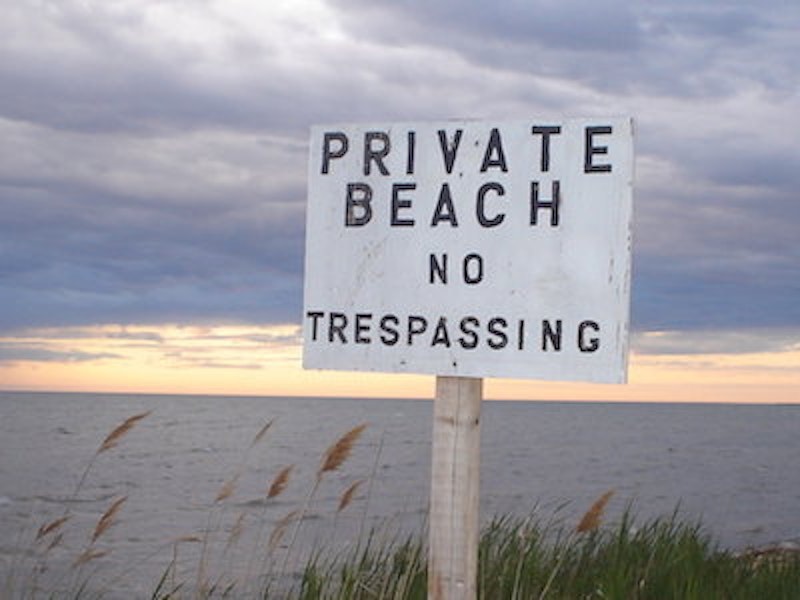When someone asks where you beachcomb, it can often create an awkward situation if you’re not someone who wants to share the location. Maybe the beach is on private property and you’ve been granted special permission to go. Maybe you did years of research to find a spot and don’t want it blown up all over social media by people who think we should all “share the love.” Maybe it’s a fragile ecosystem inaccessible by car and you don’t think the general population should be showing up in weekend tourist motorboats and posting videos to their social media, so you shouldn’t have to post latitude and longitude to a Facebook group. Or maybe a friend took you to a beach so it’s not “your” beach to share.
Whatever the reason, when you’re asked on social media where you found something, how to answer is tough. I’ve seen many people tongue-in-cheek answer “on the beach.” But over time there's been a significant amount of beachcomber social media outrage from a certain contingent that feels beach locations should be shared for all to enjoy. It’s safe to assume that these people would like to find the things that the people who don’t want to share beach locations are finding because the “share now!” folks aren’t finding those things currently themselves. Hence “share the love” means “share the love with me so I can find the stuff you’re finding.” There was even a suggestion to create a world map of beach find locations, met with much drama and eventually removed.
I read one awful story where a woman welcomed guests from another country to her private beach location, willing to share her secret beach in person if not online, asking that the beach location not be shared, only to have those guests post the exact location on social media, causing tons of tourists to arrive and wipe out what had been her favorite place on earth.
As beachcombers, our favorite beaches are sacred. They aren’t just places where we pick up broken glass or shells. They’re where we find peace from the chaos of our lives, where we heal from life’s tragedies, where we breathe. Having tourists arrive there with five-gallon buckets ready to take every piece of treasure off the beach or post photos, video and place location information is devastating. Having strangers on social media demand to know where beaches are located is, at a minimum, odd. Why should we be required to give out a location of where exactly we are, especially if it’s not a public place? Sharing a public (vs. private property) beach is one thing, but this insistence by some on a “beachcomber socialism” is strange.
Most beachcombers I know are happy to share—they’ll mail you (through selling or gifting) 95 percent of what they find, keeping maybe five percent for themselves, and once befriended, they’ll take you to their beach and let you find it for yourself if they can, if the property belongs to them or is a public beach. But if we don’t want to give out a location, especially when asked in a private message by someone we have never met, we shouldn’t have to, and I’m not sure we should have to even explain why, or feel some kind of “finder’s guilt” for finding cool stuff at a beach we can’t share for whatever reason.
Even cries of “I’m so jealous” are sad. When I see another beachcomber has found something amazing, I’m happy for him or her because I know the feeling and because they deserve to be happy at their own spot. Are there times someone has found something that make me think wow I wish I found that? Of course. But the joy is in the hunt, so I’d never let the negative energy associated with “jealousy” enter my life and disturb the positivity of the beach and beachcombing. I’d rather think “good for them!” and be happy for the hunter, then ask the question that’s always most important, because happiness comes much more from being on any beach, not from what we find: “When’s low tide?”

